Improving community health messaging: Acholi films
Originally produced as part of a project working to improve the maternal, newborn and child health in Kitgum District, Uganda our 8 films translated into Acholi are now available for free download.
Acholi is a tonal language spoken by the Acholi people, mainly in Northern Uganda, although it is also spoken in the Opari district of South Sudan.
With conflict arising in the late 1980’s, the population in Northern Uganda suffered badly during the civil war. The Lord’s Resistance Army drove many Acholi people from their land or forced them to fight for the rebel group. The conflict displaced nearly 90% of the region’s population – around 1.8 million people 1 – into Internally Displaced People (IDP) camps set up by the Ugandan government.
In 2006, an agreement was signed to cease hostilities and people started to return to their villages. However, life post-camp today is still marked by socio-economic struggles and poor health indicators:
at 336 deaths per 100,000 live births, the country’s maternal mortality rate is still among the highest on the continent and in the world.2
.
Strengthening health systems using film
Medical Aid Films provided a suite of maternal and child health films in Acholi to nonprofit organisation Food for the Hungry to be integrated into a project supporting the New Life Medical Centre (NLMC) in Kitgum. The objective was to strengthen the capacity of the NLMC health facility and to improve the knowledge, attitudes and health practices within the local community.
The films were shown at the health centre as well as at community screening sessions to complement the messages promoted by Village Health Team (VHT) volunteers or “Leader Mothers”. Supported by midwives, Leader Mothers then shared their learning with 20 to 25 mothers in their village, promoting behaviour change at the household level.
The films were well received by clinic staff, with midwives reporting the messages on spotting the danger signs in pregnancy were useful as:
“the mothers were experiencing such things but they did not know it was a problem, they thought it is a normal thing.”
Following one of the film screenings, mother of five children, Miremba, was able to identify the warning signs in her own pregnancy, saving both her own life and the life of her baby when experiencing multiple complications.
Over 8000 mothers benefitted or attended VHT sessions, improving the capacity of community health systems and improving community knowledge.
Watching during morning health education sessions at both the Outpatient Department (OPD) and the Antenatal Care Units (ANC) a total of 3915 targeted mothers watched our educational films in Acholi.
Of the 44% of targeted mothers who had watched the films:
98% said they were relevant or very relevant while only 2% said they were somewhat relevant. No mother saw the films as irrelevant.
Acholi films
These films are available to stream online or download for free:
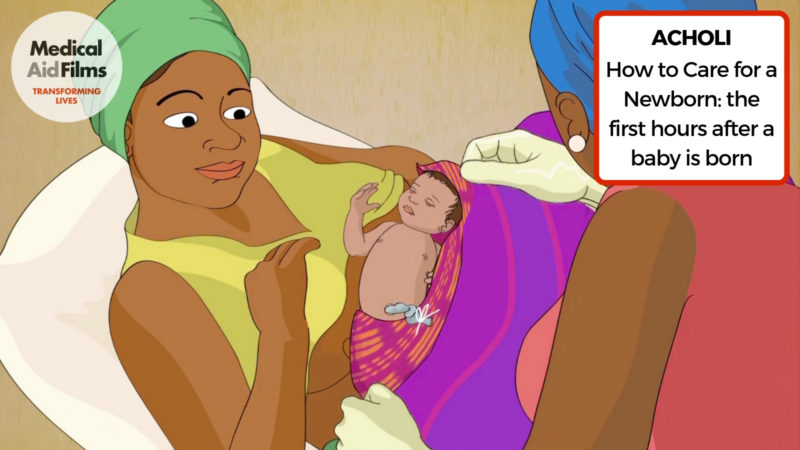
Kit Me Gwoko Lalal – Pi Cawa Manok Inge Nywal 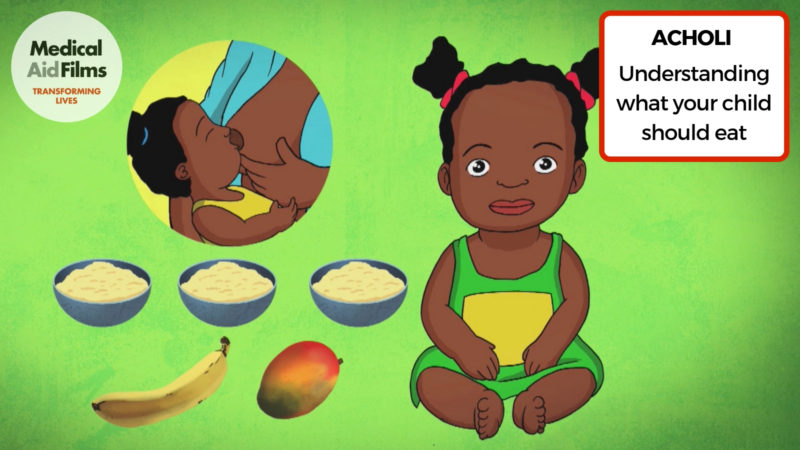
Ngo Ki Kare Mene Ma Myero Ipit Ki Latin Ni 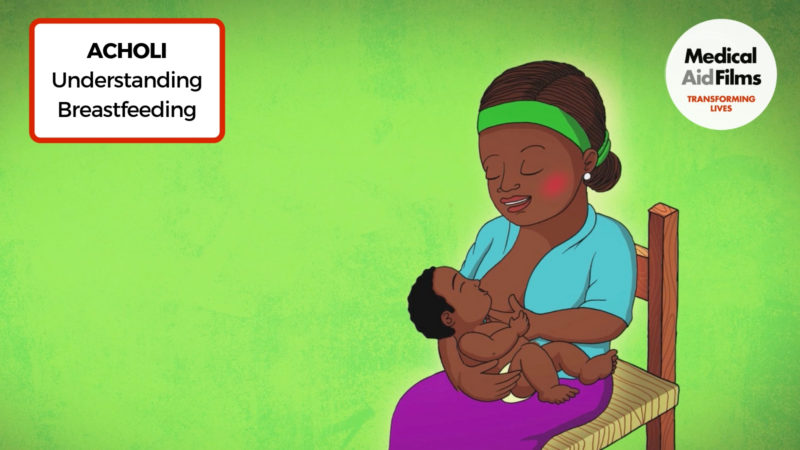
Doto Cak Kor 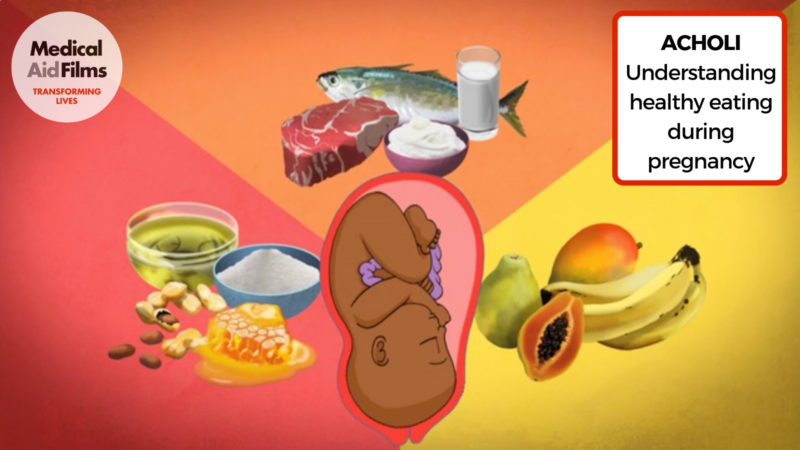
Ngo Ma Mon Ma Oyac Myero Gucam 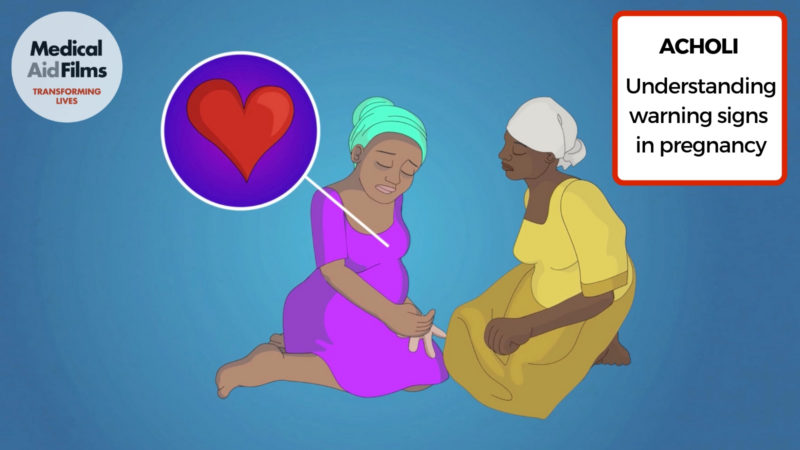
Nywalo Latin Maber Ki Ma Kome Yot: Lanyut Maraco I Yaco 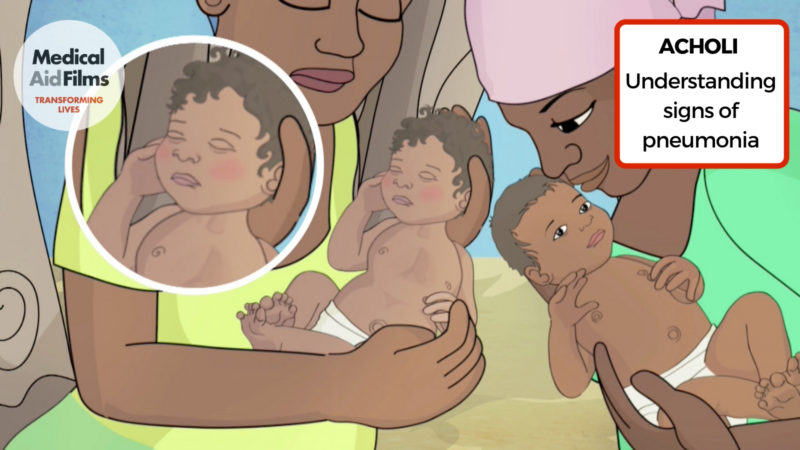
Latin Ni Tye Ma Kome Lit? Ngeyo Lanyut Pa Two Ka Tye Ki Pneumonia 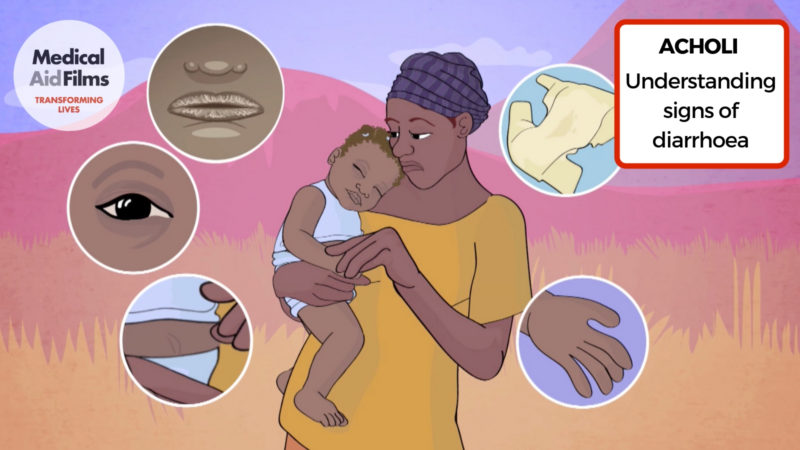
Latin Ni Kome Lit? Bed Ki Ngec Ikom Lanyut Me Two Medo Ki Two Cado 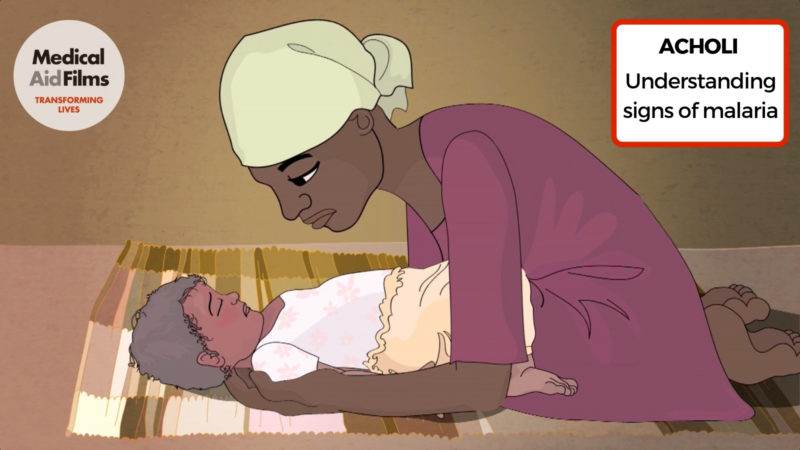
Latin Ni Tye Ma Kome Lit? Ngiyo Lanyut Pa Two Ma Ka Tye Ki Malaria
Read more: Acholi films assisted mother to identify complications in her pregnancy
Footnotes
1. William Spindler UNHCR spokesperson
2. Zurah Nakabugo The Observer